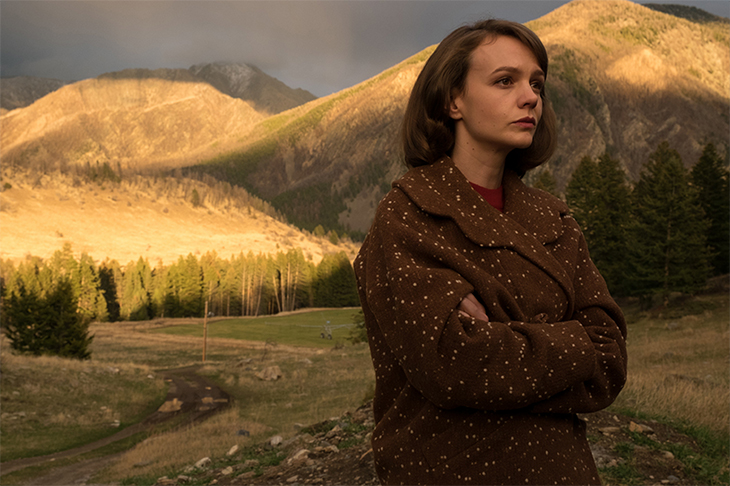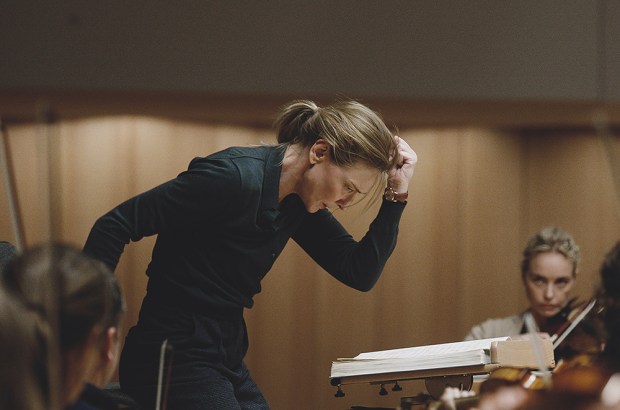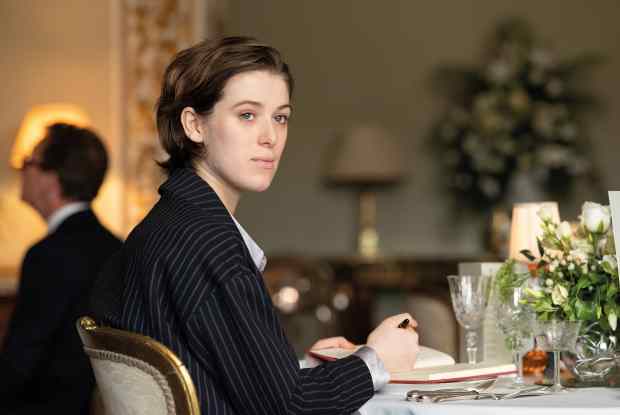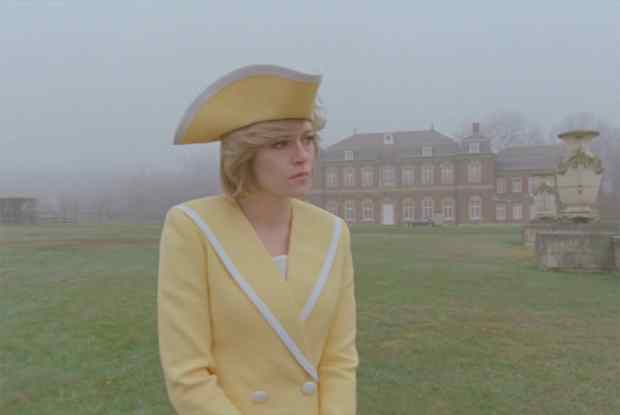Wildlife is an adaptation of the 1990 novel by Richard Ford about a family coming apart at the seams, and while cinema is full of families coming apart at the seams this one is a cut above. It is exquisite and riveting. It pays proper attention to its characters. And it is brilliantly acted. According to recent figures, the chances of Carey Mulligan ever turning in a duff performance are 0.0 per cent but she still wholly outdoes herself here.
This is the directorial debut of actor Paul Dano, who worked on the script with his partner, Zoe Kazan, for several years. He initially chanced upon the novel in a bookshop and was understandably hooked by the opening line: ‘In the fall of 1960, when I was sixteen and my father was for a time not working, my mother met a man named Warren Miller and fell in love with him.’ The mother is Jeanette (Mulligan). The father is Jerry (Jake Gyllenhaal). The narrator is their son, Joe (Ed Oxenbould), whose age has been changed to 14 here, for some reason. A lesser film adaptation would have included Joe speaking in voice-over, which is always the easy option, but there is no voice-over. Instead, we watch the disintegration of his parents’ marriage solely through his eyes. He’s not a boy who says much but he doesn’t have to say much. We see what he sees, sometimes in full, or sometimes framed by a doorway or window. His distress and disorientation never have to be stated out loud.
It’s set in small-town Montana, where the family are trying to settle. We understand that Jerry has never held onto a job for long so they’ve moved around a lot. He works as an instructor at the golf club and everyone is optimistic but then he is fired. Jeanette has always been the perfect, supportive housewife and she tries to remain supportive. She’ll get a job, she volunteers; but, to protect his ego, quickly adds: ‘just while you establish yourself’. She does get a job, as a swimming teacher, while Jerry loses interest in any work until, eventually, and in spite of his wife’s protests, he signs on with the crew of firefighters tackling the forest fires raging in the mountains. This is dangerous work and means he will have to leave the family for an unspecified period of time. And it breaks Jeanette. Brings on a psychosis, even. Within hours she has taken up with Miller (Bill Camp), who is much older, balding and portly, but wealthy. And we see what Joe sees. It isn’t pretty. There’s a dinner at Miller’s house where she even performs a horrifying, seductive dance. Not in front of the boy! you will want to shout. Send him to the pictures! But Dano is so attuned to his characters and their despair and vulnerabilities that even when they behave hatefully, as they do, or become revoltingly self-absorbed, as they do, you can’t just wash your hands of them. You care.
Dano composes all this beautifully. The atmosphere is elegiac as well as urgent, and the stunning, wide-open spaces of Montana make us feel the family’s claustrophobia even more acutely. He also gives his actors room to breathe although, in Mulligan’s instance, it’s room to be mind-blowing. She delivers both quicksilver emotion and slow-burn resentment, sometimes simultaneously, which is quite a feat. Is Jeanette a doting wife and mother, in truth, or a hedonistic pleasure seeker? Mulligan makes you believe that she is both. Meanwhile, Oxenbould, with his soulful, almost middle-aged face, is also excellent, as is Gyllenhaal, who has the lesser role, but brings to Jerry the sympathy that is necessary. No one is either a hero or villain here. Even Miller can be charming at times.
The ending is more bittersweet than conclusive, but does indicate that Joe has found some agency, at last. This isn’t just a cut above most films about unhappy families, it’s a cut above most films, period.
Got something to add? Join the discussion and comment below.
Get 10 issues for just $10
Subscribe to The Spectator Australia today for the next 10 magazine issues, plus full online access, for just $10.
You might disagree with half of it, but you’ll enjoy reading all of it. Try your first month for free, then just $2 a week for the remainder of your first year.














Comments
Don't miss out
Join the conversation with other Spectator Australia readers. Subscribe to leave a comment.
SUBSCRIBEAlready a subscriber? Log in